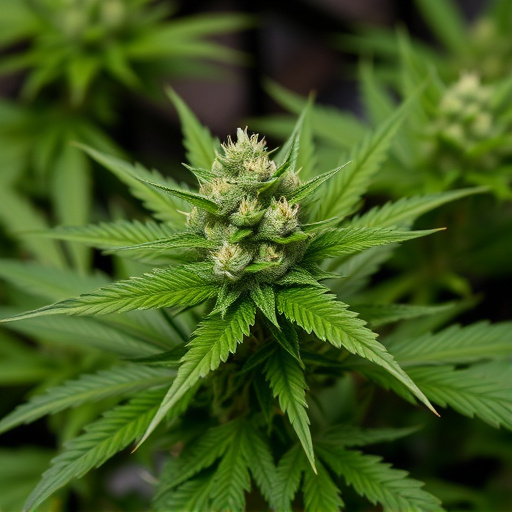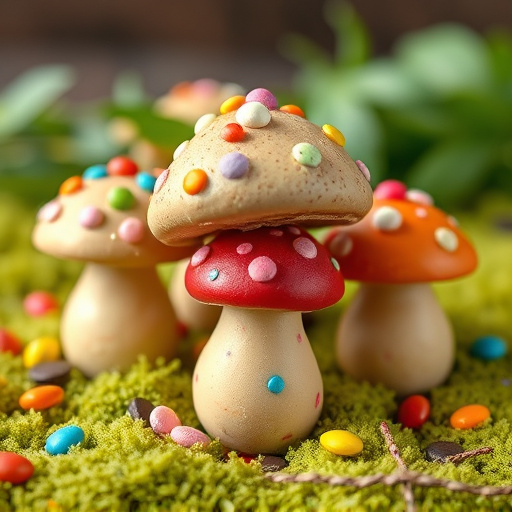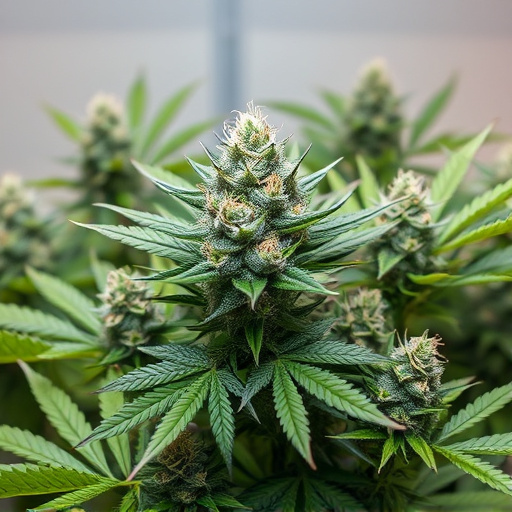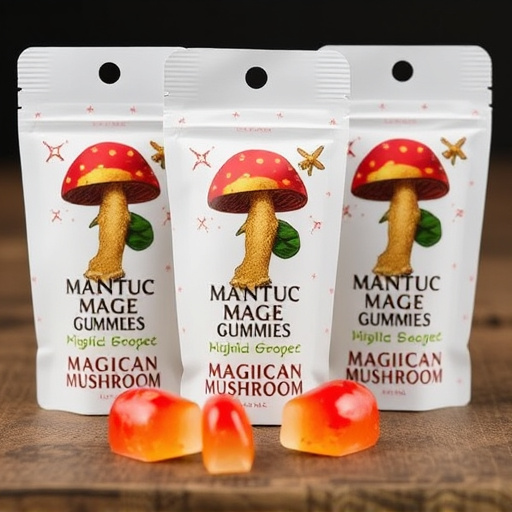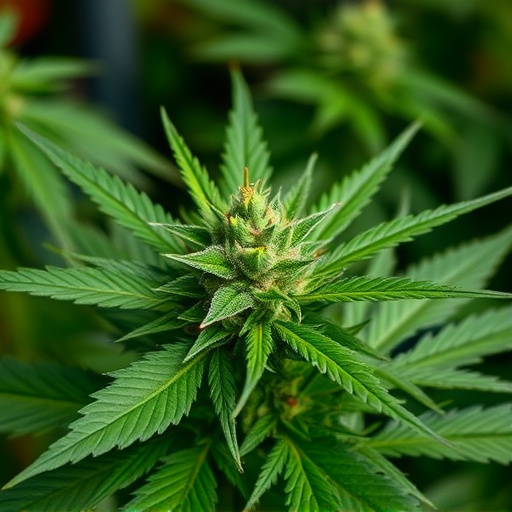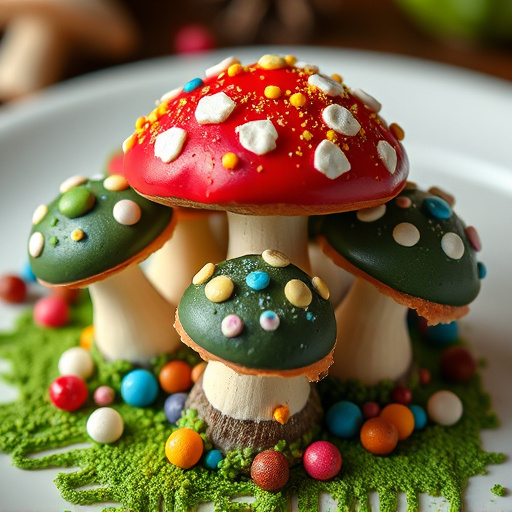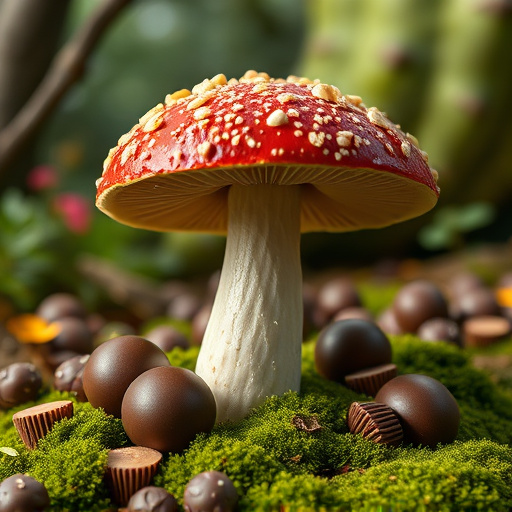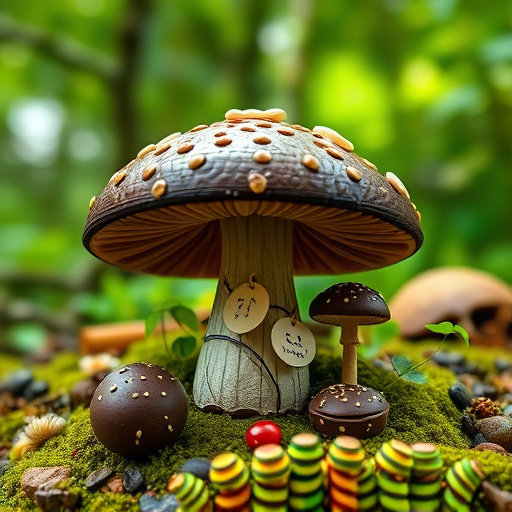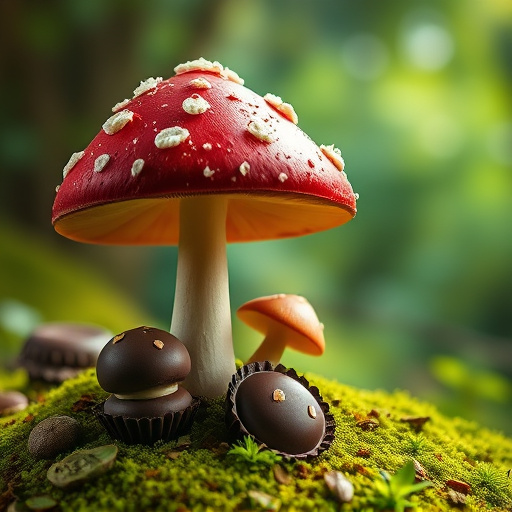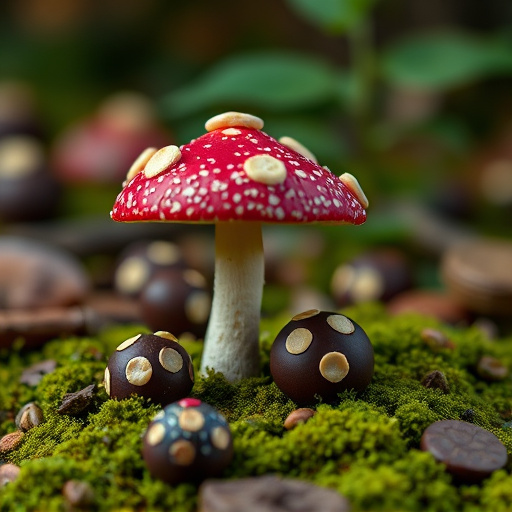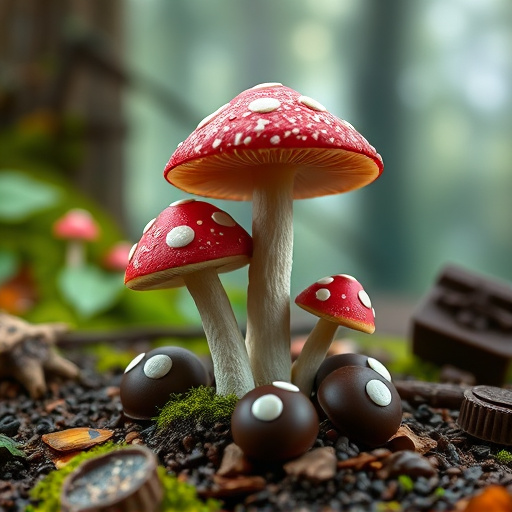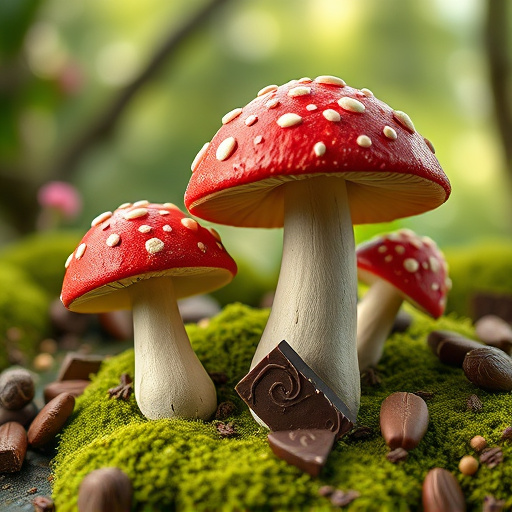Magic mushroom chocolates, rich in psilocybin, offer a promising holistic approach to addiction recovery by addressing underlying mental health issues through controlled microdosing sessions. Scientific studies show reduced anxiety, depression, and addiction symptoms, enhancing neuroplasticity and facilitating self-reflection. However, strict guidelines and informed consent are crucial due to the substances' altering effects, with global regulations varying widely amid ongoing debates about their therapeutic value versus misuse potential.
“Unveiling the potential of Lab-Tested Magic Mushroom Chocolates in Addiction Recovery, this article delves into an innovative approach to mental health. Magic mushroom chocolates, a modern twist on traditional microdosing, offer a discrete and palatable way to explore psychotropic compounds.
We’ll explore scientific insights into microdosing’s impact on mental well-being, dissect ethical considerations, and understand the growing interest in these lab-tested treats as a complementary therapy for addiction recovery.”
- Understanding Magic Mushroom Chocolates and Their Potential Benefits for Addiction Recovery
- The Science Behind Microdosing and Its Impact on Mental Health
- Exploring the Ethical Considerations and Regulations Surrounding Magic Mushroom Chocolate Treatments
Understanding Magic Mushroom Chocolates and Their Potential Benefits for Addiction Recovery
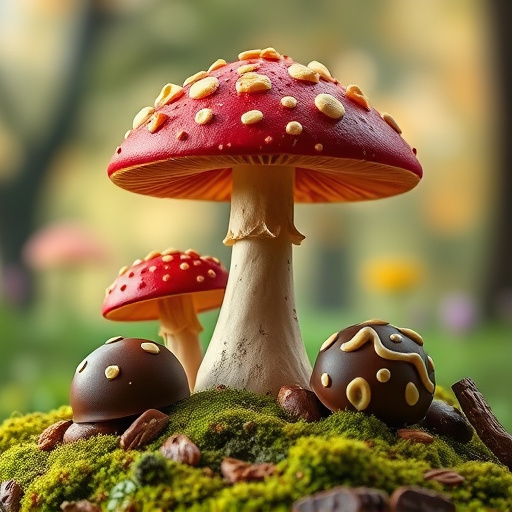
Magic mushroom chocolates, as the name suggests, are delicious treats infused with psilocybin, a compound found in certain types of mushrooms. These chocolates offer an alternative approach to traditional addiction treatment methods, gaining attention for their potential benefits in facilitating recovery. Psilocybin has been studied for its ability to induce altered states of consciousness and promote psychological healing. When consumed in controlled settings and dosages, it can help individuals explore their minds, process traumatic memories, and gain new perspectives.
For those struggling with addiction, magic mushroom chocolates present a promising avenue for healing. The experience induced by psilocybin can lead to increased self-awareness, reduced anxiety, and enhanced emotional processing. This, in turn, may aid in breaking the cycle of addiction by addressing underlying mental health issues. Research suggests that these substances could potentially reduce cravings, improve decision-making abilities, and foster a deeper sense of well-being, all of which are crucial aspects of successful recovery.
The Science Behind Microdosing and Its Impact on Mental Health
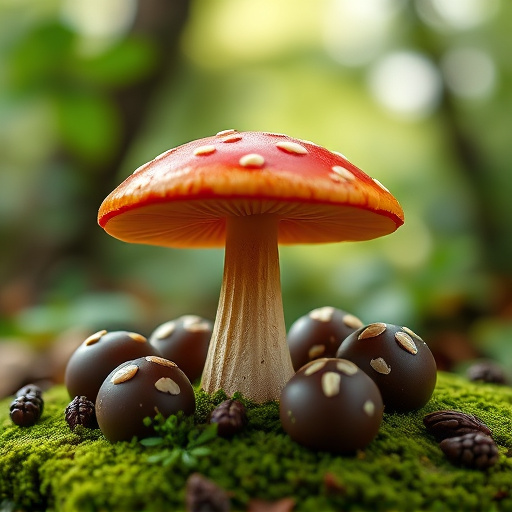
Microdosing, involving the consumption of tiny amounts of psychedelic substances like psilocybin found in magic mushrooms, has gained interest from both scientific communities and those seeking alternative wellness solutions. Recent studies suggest that microdosing can positively impact mental health, offering a potential therapeutic approach for various conditions. Research indicates it may help reduce symptoms of anxiety, depression, and even addiction. In the context of magic mushroom chocolates as an addiction recovery tool, this small dose of psilocybin can facilitate a deeper connection with one’s mind and emotions, fostering self-reflection and coping mechanisms.
The science behind microdosing explores the brain’s neuroplasticity and its ability to form new neural connections. Psilocybin is believed to enhance this process, allowing individuals to gain fresh perspectives on challenging thoughts and behaviors. This approach has shown promise in clinical trials, leading many to explore its potential for addiction recovery. By integrating magical mushroom chocolates into holistic recovery plans, individuals might experience a unique blend of relaxation and heightened self-awareness, which could aid in breaking addictive patterns and promoting mental well-being.
Exploring the Ethical Considerations and Regulations Surrounding Magic Mushroom Chocolate Treatments

The integration of magic mushrooms into chocolate treats as a form of therapy or wellness aid is an intriguing concept, but it’s not without ethical and regulatory complexities. As with any substance, especially those altering consciousness, strict guidelines must be in place to protect consumers, especially when targeted at sensitive populations like those in addiction recovery. The primary concern lies in ensuring informed consent, as participants should fully understand the potential risks and benefits associated with this alternative treatment approach.
Regulations surrounding magic mushroom chocolates for addiction recovery vary globally, with some regions permitting controlled studies while others remain highly restrictive. This discrepancy highlights the ongoing debate about psychedelic substances’ therapeutic value versus their potential for misuse. Balancing the promise of these compounds in helping individuals overcome addiction against the need for caution and regulation is an intricate task that requires ongoing dialogue between scientists, healthcare professionals, and policymakers.
Magic mushroom chocolates, though an innovative approach to delivering psychogenic compounds, require careful consideration. While promising in the field of addiction recovery and mental health treatment, ethical regulations and scientific research are still evolving. As we navigate this emerging landscape, it’s crucial to support responsible use and further study to ensure safety and efficacy. Lab-tested products can play a vital role in this process, offering a controlled way to explore the potential benefits of microdosing magic mushrooms for those seeking recovery and improved well-being.
